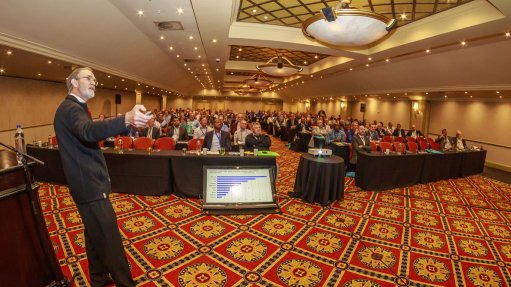
DIVERSE OFFERING In addition to its hugely successful annual PIPES technical conference, Sappma has also begun hosting regular workshops for both members and non-members alike that focus on different aspects of quality
Despite a struggling economy, the Southern African Plastic Pipe Manufacturers Association (Sappma) reported a growth in membership and influence last year.
Speaking at the association’s fifteenth annual general meeting held in Johannesburg in October 2019, Sappma CEO Jan Venter said the importance of having a dedicated, nonprofit organisation that offers technical support and coordinates activities in the plastic piping industry cannot be overemphasised.
“Judging by the growth in the market and new applications we have seen in recent years, it is clear that plastic is no longer seen as an ‘alternative’ pipe material. It has grown to a dominant position in piping systems globally, with an estimated share of more than 50%,” he said.
He highlighted that, in South Africa alone, about 150 000 t of plastic pipe – polyvinyl chloride (PVC) and high-density polyethylene (HDPE) – are produced annually and used across a spectrum of industries, including mining, civil, irrigation, industrial, telecommunication and building.
Plastic piping systems are relied upon to provide integral, long-term and extremely important infrastructure to the country – including sewage, telecommunication, gas and electricity supply. Moreover, South Africa is rapidly becoming an arid country where water is a scarce resource, said Venter.
“With increasing demand and inconsistent rainfall, we can no longer afford the huge losses in pipelines (estimated at 40%). We need piping systems that are reliable, leak-free and durable. HDPE and PVC pipes answer this call with distinction as they will not rust or corrode over time.
“They are more cost effective in applications where soil is aggressive, offer extended lifetimes of up to 100 years and are highly suitable for the rehabilitation of old pipelines.”
Apart from focusing on product standards and long-term quality, Sappma also fulfils an indispensable need in the marketplace for technical marketing and problem solving. This service is not only offered to its own members, but extends throughout the industry.
“We have become a repository of technical information and are frequently called upon by municipalities, engineers and decision-makers to assist with scoping a project, specifying standards or making technical decisions,” Venter said.
For this reason, Sappma has appointed a technical manager to assist with queries and offer professional advice, while the association’s regularly updated and distributed technical manual for PVC and HDPE piping systems continues to be indispensable to designers and decision-makers in the piping business.
“In addition to our hugely successful PIPES XII technical conference that took place in August, Sappma has also begun hosting regular workshops for both members and nonmembers alike that focus on different aspects of quality. These events were all very well attended and are clearly addressing a very big need that exists in the market. As a result, we will be hosting similar sessions in other main centres during 2020,” he revealed.
Factory audits will continue to be a key factor in the success of the association and are seen as an important differentiator that sets members apart from nonmembers. Announced and unannounced audits were completed on all manufacturing and installing members during 2019 and Sappma has reported an increase in quality awareness and compliance.